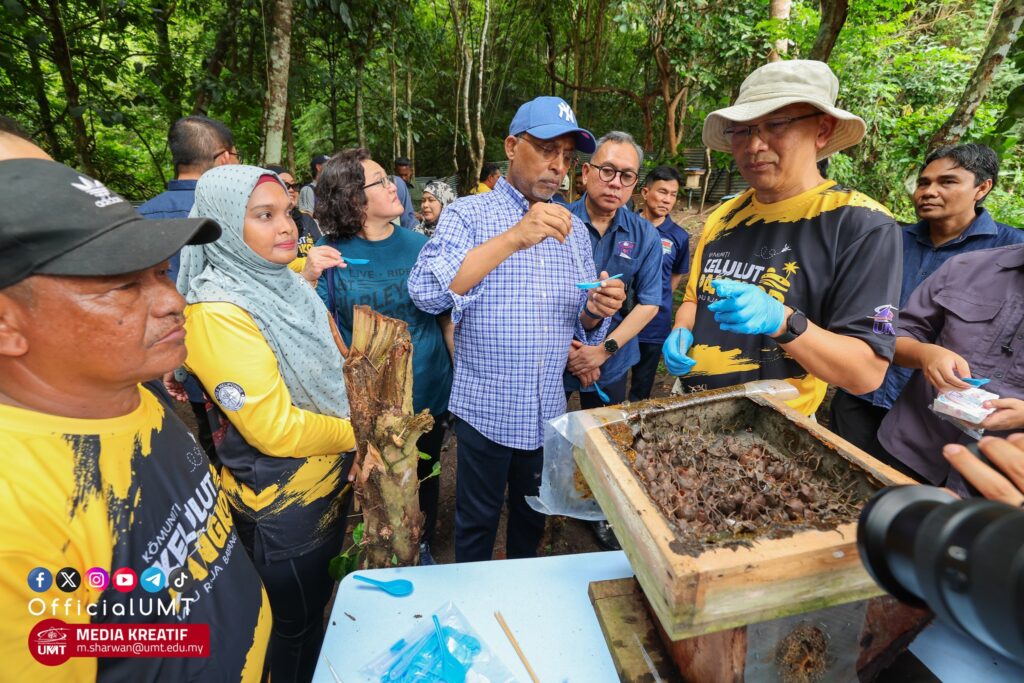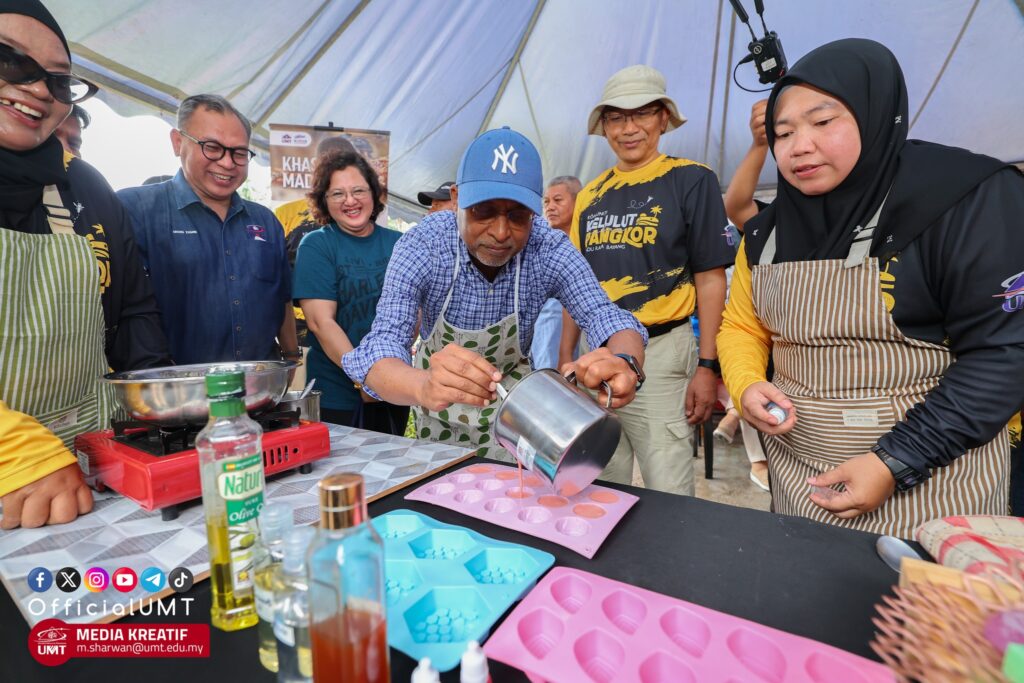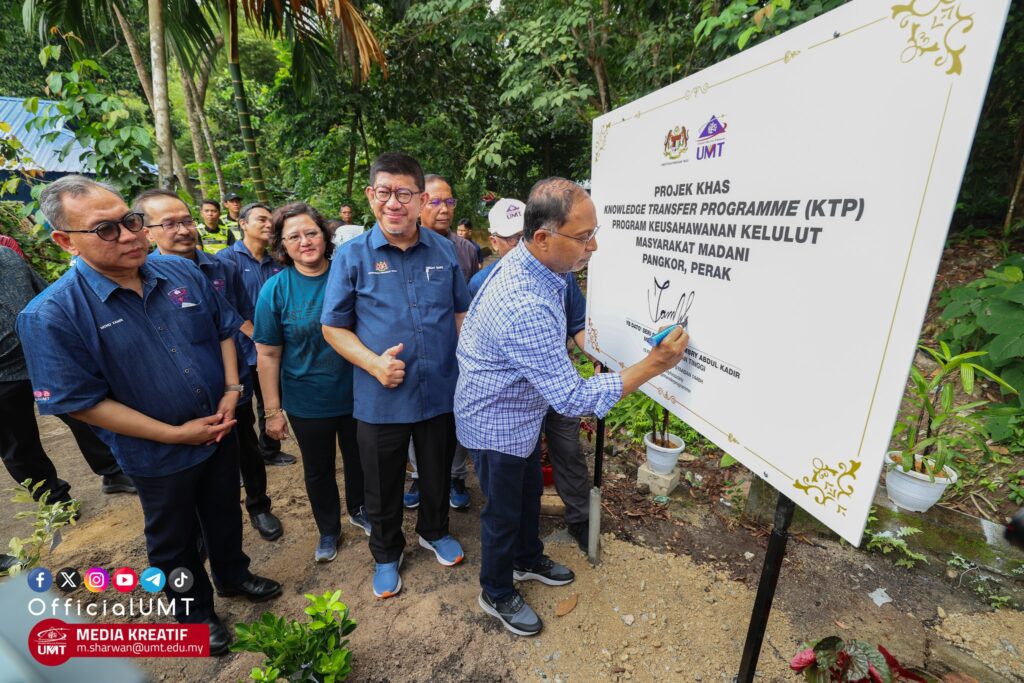


UMT Empowers Pangkor Community Through Innovative Knowledge Transfer Programme
Monday, 17/03/2025
Share This Article :
By Sulwani Abd Rahman, Centre for Knowledge Transfer, Industry and Community Linkages
Universiti Malaysia Terengganu (UMT) continues to enhance its role in knowledge transfer to the community through the Knowledge Transfer ProgramME (KTP) focused on entrepreneurial beekeeping with stingless bees in Pangkor.
The project, managed by the Centre for Knowledge Transfer, Industry Linkages and Community (PPIJIM) under the administration of the Office of the Pro Vice-Chancellor (Industry, Community, and Digital Network), is led by Professor Dr. Shamsul Bahri Abd Razak, a lecturer from UMT’s Faculty of Fisheries and Food Science.
The launch ceremony was held in February and officiated by the Minister of Higher Education (MOHE), Dato’ Seri Diraja Dr. Zambry Abd Kadir, in Kampung Tengah, Pangkor, Perak. The event was attended by various stakeholders, including local community members and government agency representatives.
The launch event underscored UMT and MOHE’s commitment to community empowerment through impactful innovation and knowledge transfer, ensuring long-term benefits for local communities while contributing to sustainable natural resource conservation.
According to Dr. Zambry, this initiative is part of MOHE’s efforts to ensure that universities serve as high-impact knowledge transfer centres that benefit communities by promoting socio-economic empowerment and natural resource conservation.
He emphasized that universities’ expertise and facilities must be fully utilized in line with MOHE’s primary focus on strengthening the community’s economy through new knowledge transfer and sharing approaches.
“This stingless bee farming project not only creates new economic opportunities but also raises public awareness about environmental protection to ensure the sustainability of Pangkor’s ecosystem. It aligns with our aspiration to position universities as innovation hubs and catalysts for social development,” said Dr. Zambry in his speech during the launch ceremony.
Meanwhile, UMT Vice-Chancellor Professor Ir. Ts. Dr. Mohd Zamri Ibrahim said the project focuses on five key elements: rapid implementation, high impact, affordability, marketability, and sustainability.
UMT also conducts continuous monitoring and evaluation to ensure the project’s success and strengthen collaboration with strategic partners. Additionally, UMT’s hands-on knowledge transfer approach, which includes peer mentoring, motivation, and practical guidance, has contributed to the success of past projects.
Dr. Zambry also announced the Pangkor community’s plan to establish a Stingless Bee Farming Gallery as a one-stop centre to showcase community products and highlight Pangkor’s unique heritage. This idea was inspired by project participants’ visits to UMT and university-led community guidance programmes.
He also mentioned other potential knowledge transfer projects, such as Mud Crab and Soft-Shell Crab Farming, Turtle Conservation, Ecotourism, and Pufferfish Farming, which could empower local communities and enhance the tourism sector in Pangkor Island.
